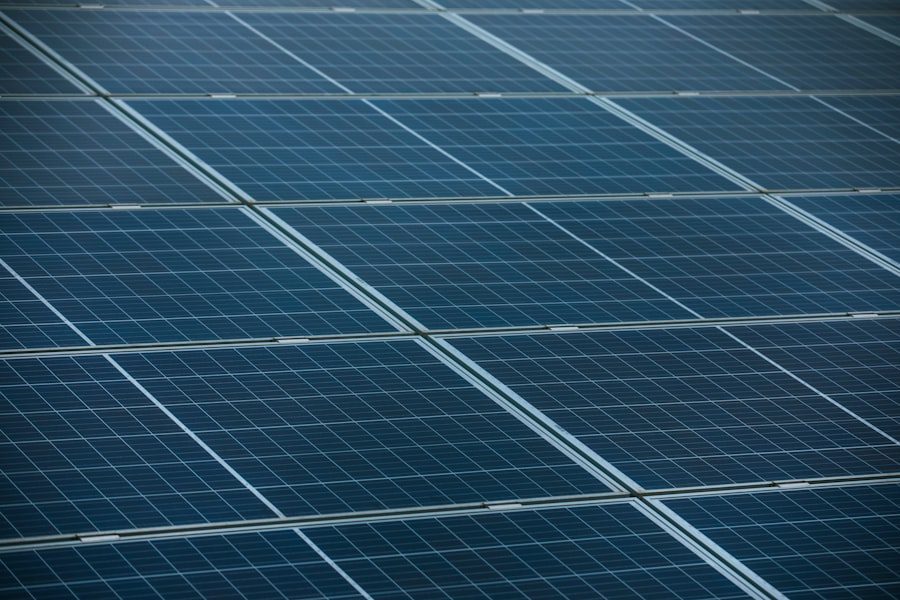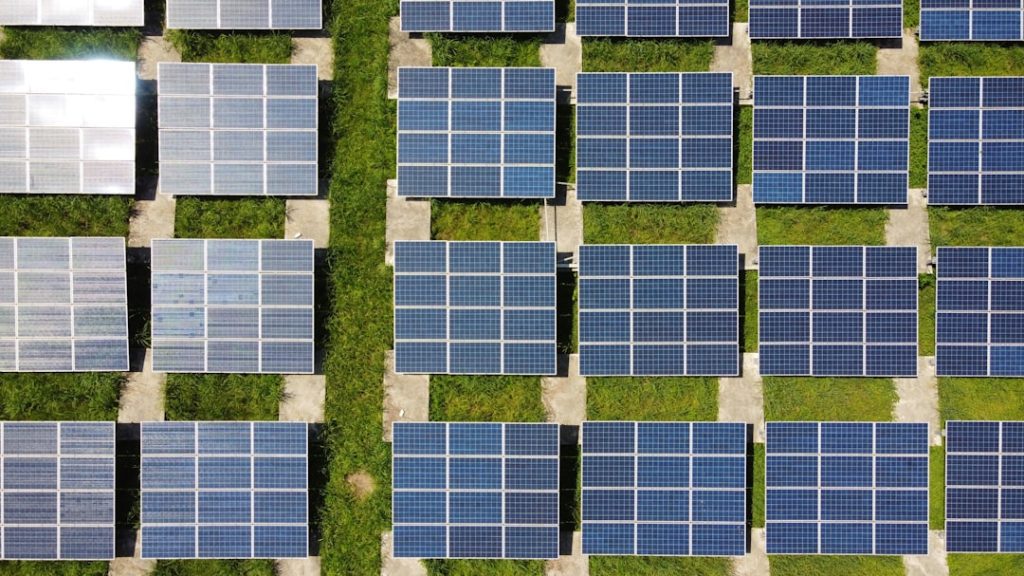Afghanistan faces significant challenges in meeting its energy needs. The country’s energy infrastructure is underdeveloped, and the majority of its population lacks access to reliable electricity. Afghanistan’s energy sector heavily relies on imported fossil fuels, making it vulnerable to price fluctuations and supply disruptions.
Additionally, the country’s energy consumption is growing rapidly due to population growth and economic development, further straining the already limited energy resources. These challenges have significant implications for Afghanistan’s economic development, public health, and overall quality of life. The lack of access to reliable energy directly impacts the daily lives of Afghan citizens.
Many households rely on inefficient and polluting sources of energy such as wood and coal for cooking and heating, leading to indoor air pollution and respiratory illnesses. In urban areas, power outages are common, affecting businesses, hospitals, and essential services. The energy challenges in Afghanistan are complex and multifaceted, requiring a comprehensive approach that addresses both supply and demand-side issues.
In recent years, there has been a growing recognition of the importance of energy efficiency as a key strategy for addressing Afghanistan’s energy challenges and promoting sustainable development.
Key Takeaways
- Afghanistan faces significant energy challenges due to its reliance on imported energy, limited access to electricity, and high energy costs.
- Energy efficiency is crucial for Afghanistan’s sustainability as it can help reduce energy consumption, lower costs, and minimize environmental impact.
- Renewable energy options such as solar, wind, and hydro power have great potential to provide sustainable and reliable energy sources for Afghanistan.
- Energy-efficient solutions for residential buildings, such as improved insulation and energy-efficient appliances, can help reduce energy consumption and lower utility bills.
- Energy-efficient solutions for commercial and industrial buildings, including efficient lighting, HVAC systems, and building automation, can significantly reduce energy usage and operating costs.
- The Afghan government has implemented initiatives and policies to promote energy efficiency, including energy conservation programs and incentives for renewable energy projects.
- International organizations play a crucial role in supporting energy-efficient solutions in Afghanistan through funding, technical assistance, and capacity building initiatives.
The Importance of Energy Efficiency for Afghanistan’s Sustainability
Energy Efficiency for Sustainability
Energy efficiency is a critical component of Afghanistan’s efforts to achieve sustainability in its energy sector. By improving the efficiency of energy production, distribution, and consumption, Afghanistan can reduce its reliance on imported fossil fuels, lower greenhouse gas emissions, and enhance energy security. Energy efficiency measures can also help to alleviate the burden on the country’s energy infrastructure, reducing the frequency of power outages and improving the reliability of electricity supply.
Cost Savings and Accessibility
Additionally, energy efficiency can lead to cost savings for consumers and businesses, making energy more affordable and accessible. In the residential sector, energy-efficient appliances, insulation, and lighting can help households reduce their energy consumption and lower their utility bills. In the commercial and industrial sectors, energy management systems, efficient HVAC systems, and building retrofits can significantly reduce energy waste and improve overall productivity.
Job Creation and Economic Growth
Investing in energy efficiency also creates opportunities for job creation and economic growth, as it requires skilled labor for installation, maintenance, and operation of efficient technologies.
Renewable Energy Options for Afghanistan

In addition to improving energy efficiency, Afghanistan has significant potential for developing renewable energy sources. The country has abundant solar radiation, wind resources, and hydroelectric potential that can be harnessed to diversify its energy mix and reduce its dependence on imported fossil fuels. Solar photovoltaic (PV) systems can be deployed in both urban and rural areas to provide electricity to off-grid communities and supplement grid power.
Wind turbines can be installed in windy regions to generate clean electricity for local consumption or export. Hydroelectric power plants can be developed along rivers to provide reliable and renewable electricity to urban centers and industrial facilities. Investing in renewable energy not only reduces greenhouse gas emissions but also creates opportunities for economic development and job creation.
The development of renewable energy projects can attract investment, technology transfer, and expertise from international partners, contributing to the growth of the domestic renewable energy industry. Furthermore, renewable energy projects can enhance energy access in remote and underserved areas, improving the livelihoods of rural communities and reducing disparities in energy access across the country. By tapping into its renewable energy potential, Afghanistan can build a more resilient and sustainable energy infrastructure for the future.
Energy-efficient Solutions for Residential Buildings
| Energy-efficient Solutions for Residential Buildings | |
|---|---|
| Insulation | Proper insulation can reduce energy consumption by maintaining a consistent temperature inside the building. |
| Energy-efficient windows | Windows with low-e coatings and double or triple panes can reduce heat loss and gain, improving energy efficiency. |
| LED lighting | Switching to LED bulbs can significantly reduce energy usage for lighting in residential buildings. |
| Energy-efficient appliances | Appliances with Energy Star ratings can help reduce energy consumption in residential buildings. |
| Solar panels | Installing solar panels can generate renewable energy and reduce reliance on traditional power sources. |
Improving the energy efficiency of residential buildings is crucial for reducing energy consumption and improving living conditions for Afghan households. Many homes in Afghanistan lack proper insulation, efficient heating systems, and modern appliances, leading to high energy waste and discomfort for residents. Retrofitting existing buildings with insulation, double-glazed windows, and efficient heating systems can significantly reduce energy demand for space heating and cooling.
Installing energy-efficient lighting and appliances can further lower electricity consumption and reduce utility bills for households. In rural areas where grid electricity is limited or unavailable, off-grid solar PV systems can provide a reliable source of electricity for lighting, phone charging, and small appliances. These systems can improve the quality of life for rural households by providing access to modern energy services while reducing reliance on polluting and expensive fuels such as kerosene or diesel generators.
Additionally, promoting energy-efficient cooking technologies such as improved cookstoves can help reduce indoor air pollution and improve respiratory health for families who rely on solid fuels for cooking. By implementing these energy-efficient solutions in residential buildings, Afghanistan can improve living standards, reduce energy poverty, and contribute to a more sustainable future.
Energy-efficient Solutions for Commercial and Industrial Buildings
Commercial and industrial buildings are significant consumers of energy in Afghanistan, representing a substantial opportunity for energy savings through efficiency measures. Implementing building codes and standards for new construction and retrofits can ensure that commercial and industrial buildings are designed and operated with energy efficiency in mind. Energy management systems can help businesses monitor and optimize their energy use, identifying opportunities for improvement and cost savings.
Upgrading HVAC systems, lighting, and insulation in commercial buildings can lead to significant reductions in energy consumption while improving comfort for occupants. In the industrial sector, improving the efficiency of manufacturing processes and equipment can lead to substantial energy savings and cost reductions. Implementing best practices for motor systems, compressed air systems, and process heating can help industrial facilities operate more efficiently while reducing their environmental impact.
Investing in combined heat and power (CHP) systems can also improve the overall efficiency of industrial operations by capturing waste heat for use in heating or power generation. By promoting energy-efficient solutions in commercial and industrial buildings, Afghanistan can reduce its overall energy demand, lower operating costs for businesses, and enhance its competitiveness in the global market.
Government Initiatives and Policies for Promoting Energy Efficiency

Comprehensive Framework for Energy Efficiency
The National Energy Efficiency Strategy outlines a comprehensive framework for promoting energy efficiency in buildings, industry, transportation, and agriculture. This strategy includes measures such as setting minimum energy performance standards for appliances, promoting public awareness campaigns on energy conservation, and providing financial incentives for energy-efficient investments.
Implementation and Collaboration
The government has established the Energy Efficiency Directorate within the Ministry of Energy and Water to oversee the implementation of energy efficiency policies and programs. The directorate works closely with relevant stakeholders, including businesses, industry associations, non-governmental organizations, and international partners to promote best practices in energy management and technology adoption.
Fiscal Incentives and Sustainable Development
Additionally, the government has introduced fiscal incentives such as tax breaks or subsidies for businesses that invest in energy-efficient technologies or practices. By implementing these initiatives and policies, the Afghan government aims to create an enabling environment for energy efficiency investments while contributing to the country’s sustainable development goals.
The Role of International Organizations in Supporting Energy-efficient Solutions in Afghanistan
International organizations play a crucial role in supporting Afghanistan’s efforts to promote energy efficiency and sustainable development. Organizations such as the United Nations Development Programme (UNDP), the World Bank, and the Asian Development Bank (ADB) provide technical assistance, capacity building, and financial support for energy efficiency projects in Afghanistan. These organizations work with the Afghan government to develop policies, regulations, and standards that promote energy efficiency across various sectors.
They also support the implementation of pilot projects to demonstrate the feasibility and benefits of energy-efficient technologies in real-world applications. International organizations also facilitate knowledge exchange and technology transfer by connecting Afghan stakeholders with global experts and industry leaders in the field of energy efficiency. They provide training programs, workshops, and seminars to build local capacity in energy management, renewable energy integration, and sustainable building design.
Furthermore, international organizations help mobilize funding from donor countries or international financial institutions to support large-scale energy efficiency projects in Afghanistan. By leveraging their expertise and resources, international organizations contribute to the advancement of energy-efficient solutions in Afghanistan while fostering collaboration between local stakeholders and global partners. In conclusion, Afghanistan faces significant challenges in meeting its growing energy demand while ensuring sustainability and resilience in its energy sector.
By prioritizing energy efficiency measures and investing in renewable energy options, Afghanistan can reduce its reliance on imported fossil fuels, improve access to modern energy services, lower greenhouse gas emissions, and enhance economic development opportunities. The government’s initiatives and policies aimed at promoting energy efficiency are crucial for creating an enabling environment for investments in efficient technologies across various sectors. International organizations play a vital role in supporting Afghanistan’s efforts by providing technical assistance, capacity building, financial support, and knowledge exchange opportunities.
By working together with local stakeholders and global partners, Afghanistan can build a more sustainable and resilient energy infrastructure that meets the needs of its population while contributing to global efforts to combat climate change.
For more information on energy efficiency in Afghanistan, you can read about Kabul implementing energy efficiency regulations in this article. This article discusses the steps being taken to improve energy efficiency in the country’s capital, which is a crucial aspect of sustainable development and reducing energy consumption.
FAQs
What are energy-efficient solutions?
Energy-efficient solutions are technologies, products, and practices that aim to reduce energy consumption and minimize waste. These solutions are designed to lower energy costs, decrease greenhouse gas emissions, and promote sustainability.
Why are energy-efficient solutions important in Afghanistan?
Afghanistan faces challenges in meeting its energy demands, and energy-efficient solutions can help alleviate this issue by reducing the strain on the country’s energy resources. Additionally, energy-efficient solutions can contribute to environmental conservation and reduce the country’s carbon footprint.
What are some examples of energy-efficient solutions in Afghanistan?
Examples of energy-efficient solutions in Afghanistan include the use of solar panels for electricity generation, energy-efficient appliances and lighting, improved insulation in buildings, and the implementation of energy management systems in industries and businesses.
How can energy-efficient solutions benefit Afghanistan?
Energy-efficient solutions can benefit Afghanistan by reducing energy costs for households, businesses, and the government. They can also contribute to a more reliable and sustainable energy supply, reduce the country’s dependence on imported energy, and create new job opportunities in the renewable energy sector.
Are there any government initiatives promoting energy-efficient solutions in Afghanistan?
The Afghan government has shown interest in promoting energy-efficient solutions and has implemented initiatives to support the adoption of renewable energy technologies and energy-efficient practices. These initiatives aim to improve energy access, reduce energy poverty, and promote sustainable development in the country.



